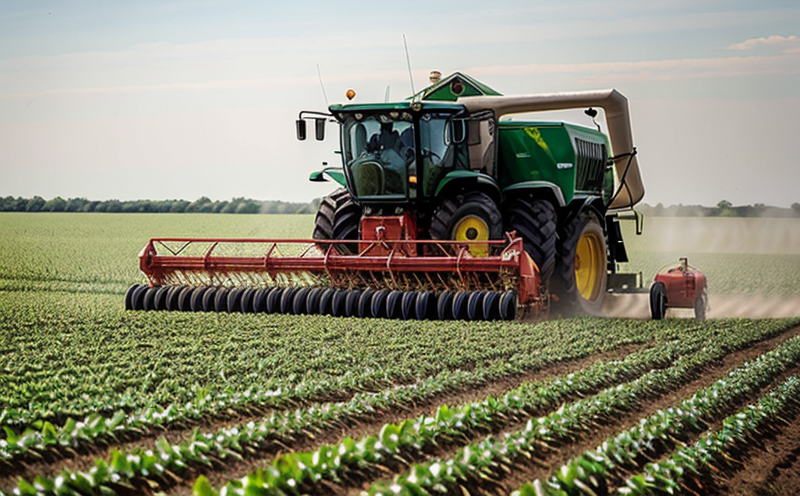On-Farm Demonstration Yield Testing
On-Farm Demonstration Yield Testing is a crucial service that helps farmers and agricultural researchers understand the true potential of new crop varieties, improved agronomic practices, or innovative technologies. By conducting these tests on-site where crops are grown, we can provide accurate yield data under real-world conditions. This testing allows for precise measurement of grain volume, weight, moisture content, and other critical parameters that influence overall productivity.
The process involves meticulous preparation, including selecting representative plots within the field, preparing a detailed test plan, and ensuring all equipment used is calibrated to international standards such as ISO 6471-2 for grain sampling. Once the data collection phase begins, we employ advanced instrumentation like grain fill meters and moisture testers to ensure accuracy.
Understanding how environmental factors—such as temperature, humidity, and soil type—affect crop growth is essential in interpreting results correctly. For instance, variations in rainfall patterns can have significant impacts on yields; therefore, our tests account for these variables by comparing multiple sites within the same region. This approach ensures that any observed differences are due to genetic or management factors rather than external conditions.
After gathering all necessary data points, we analyze it using statistical methods compliant with ISO 3501-2 to determine not just average yields but also variability between different treatments applied in the demonstration plots. Reporting these findings includes graphical representations of yield curves along with detailed descriptions of each plot's characteristics.
| Application Area | Test Focus |
|---|---|
| Breeding Programs | Comparative analysis of different genotypes under varied environmental conditions. |
| Agronomy Trials | Evaluation of fertilizers, pesticides, and irrigation methods on yield performance. |
| New Crop Introduction | Assessment of potential adaptability and productivity of newly introduced species. |
Applied Standards
The accuracy of on-farm demonstration yield testing relies heavily on adherence to recognized international standards. We follow ISO 6471-2 for grain sampling, ensuring that samples are taken in a way that represents the entire field uniformly. Similarly, ISO 3501-2 guides our statistical analysis processes, helping us draw reliable conclusions from collected data.
Our commitment to maintaining high standards extends beyond compliance with these guidelines. We also stay updated on any revisions or new editions of relevant documents, ensuring that our methodologies remain current and effective throughout the testing process.
Industry Applications
- Breeding Programs: Comparative analysis of different genotypes under varied environmental conditions.
- Agronomy Trials: Evaluation of fertilizers, pesticides, and irrigation methods on yield performance.
- New Crop Introduction: Assessment of potential adaptability and productivity of newly introduced species.
Environmental and Sustainability Contributions
On-farm demonstration yield testing plays an important role in promoting sustainable agricultural practices. By identifying which varieties or techniques produce higher yields while minimizing resource use, we support more efficient farming methods that reduce environmental impact.
- Promotes water-efficient agriculture through optimal irrigation scheduling based on actual crop needs rather than fixed schedules.
- Encourages reduced tillage practices which help maintain soil structure and improve carbon sequestration capabilities.
- Reduces chemical inputs by recommending tailored fertilizer applications that meet plant requirements without excess.





